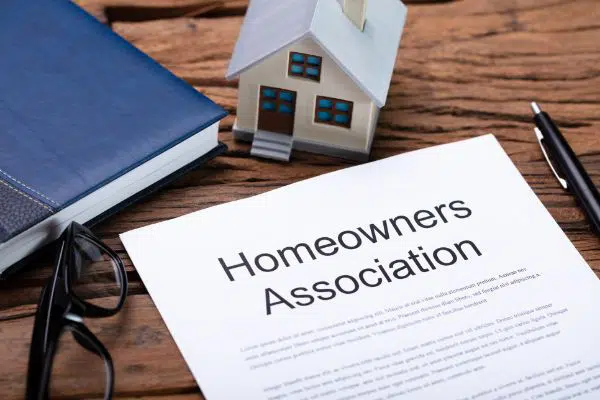The process for resolving disputes between Arizona homeowners and their homeowners associations (HOAs) has had a dedicated venue in Arizona law since 2011. Rather than needing to pursue conflicts via the civil court system, the parties to such a dispute instead pass through an administrative procedure.
The Homeowners Association Dispute Process—as laid out in Arizona Revised Statutes sections 32-2199 through 32-2199.05—is run (as of 2016) by the Arizona Department of Real Estate. Either a homeowner or the association is permitted to petition the Department to consider violations of the association’s rules or documents, or of violations of the laws governing planned communities or condominiums. The Department’s jurisdiction is limited in scope, and does not cover either disputes among owners that do not concern the association itself, or disputes between an owner and an organization or person involved in the design, improvement, or building of homes.
The party petitioning the Department must submit their complaint in writing. The Department is then required to send a copy of the petition to the party being complained against, along with notice that they must respond within 20 days with any reasons they believe the complaint should be dismissed. Failure to respond is taken as admission of the allegations, which leads to a default decision in favor of the petitioner. When the response is received, the commissioner (or a designee) reviews the petition to determine whether a hearing is justified. If so, the petition is forwarded to the office of administrative hearings to be overseen by an administrative judge.
Every petition is accompanied by a set fee, which is deposited into a hearing fund as detailed in section 32-2199.05. If the petition is dismissed, whether via request of the petitioner prior to a hearing or by agreement of both parties prior to a hearing, the fee is refunded.
The dispute resolution process is expressly designed to not rob a petitioner or respondent of further options should the outcome not prove satisfactory.
If you find yourself in a disagreement over elements governed by an HOA anywhere in the state of Arizona, an experienced attorney with strong scruples like the real estate attorneys at Provident Law can be a huge help—either in drafting a complaint or in challenging one. Our attorneys represent buyers, sellers, landlords, tenants, lenders, borrowers, trustees, guarantors, shareholders, partners, and others. We structure, negotiate and document a variety of real estate and financing transactions, such as leases, purchase and sale agreements, loans and development agreements for a variety of commercial and residential projects. Contact us for more details.
Christopher J. Charles is the founder and Managing Partner of Provident Law ®. He is a State Bar Certified Real Estate Specialist and a former “Broker Hotline Attorney” for the Arizona Association of REALTORS ® (the “AAR”). Mr. Charles holds the AV ® Preeminent Rating by the Martindale-Hubbell Peer Review Ratings system which connotes the highest possible rating in both legal ability and ethical standards. He serves as an Arbitrator and Mediator for the AAR regarding real estate disputes; and he served on the State Bar of Arizona’s Civil Jury Instructions Committee where he helped draft the Agency Instructions and the Residential Landlord/Tenant Eviction Jury Instructions.
Christopher is a licensed Real Estate Instructor and he teaches continuing education classes at the Arizona School of Real Estate and Business. He can be reached at Chris@ProvidentLawyers.com or at 480-388-3343.


